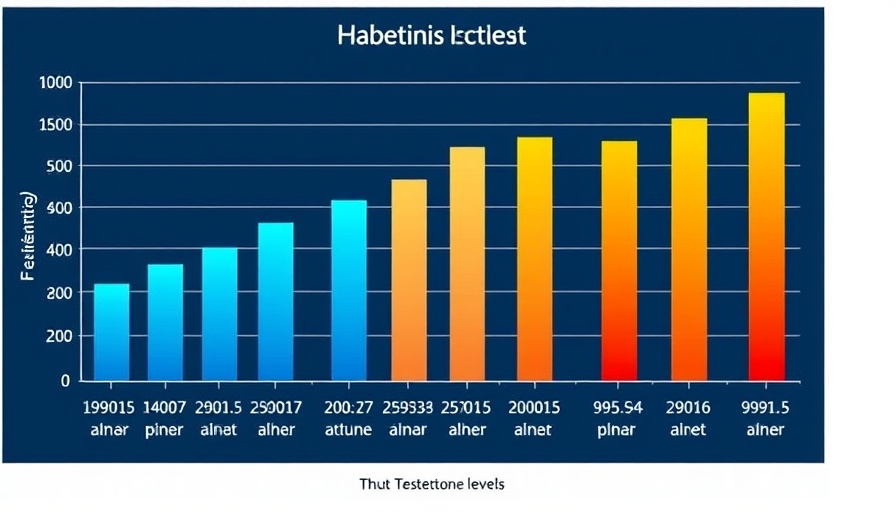
Understanding Metformin's Role in Diabetes Management
Metformin has long been recognized as a cornerstone treatment for type 2 diabetes (T2D). It enhances insulin sensitivity and regulates blood sugar levels, crucial for managing this chronic condition that affects millions globally. Yet, while its benefits in controlling glucose levels are widely acknowledged, emerging evidence suggests a hidden downside—reduced testosterone levels in men. This article will delve into the implications of this side effect and explore alternative approaches that may address both diabetes and hormonal health.
The Hidden Dangers: Testosterone Decrease in Men
A recent observational study reinforces the side effect of reduced testosterone linked to metformin usage. A 2024 study in India tracked 30 men with T2D over three months, compared to 30 non-diabetic counterparts. Remarkably, every man taking metformin experienced a notable decrease in testosterone levels. This decline has more than just hormonal implications; it poses risks to overall quality of life, including reduced energy, libido, muscle mass, and can contribute to erectile dysfunction.
Broader Implications on Health and Well-being
The reduction of testosterone isn’t merely an endocrinological concern. It intersects with various aspects of a man's well-being. Lower testosterone can lead to diminished vitality, impacting mental health and social interactions. Furthermore, it complicates the already significant hormonal challenges posed by T2D, potentially necessitating a comprehensive approach to treatment that addresses both hormonal and metabolic health.
Exploring Natural Alternative Therapies
As awareness grows regarding the testosterone-lowering effects of metformin, there is a rising interest in exploring natural therapies. Some studies point to traditional medicinal plants as potential adjuncts in managing T2D without the androgenic umbra of pharmaceutical treatments. For instance, the integration of herbs like fenugreek and ginseng has been suggested in various cultures for their potential to stabilize blood sugar and foster hormonal balance.
Future Trends in Treatment for Type 2 Diabetes
Looking ahead, there may be a paradigm shift toward combining traditional dietary approaches with modern pharmaceuticals. Weight loss, achieved through nutrition-based interventions, has shown promise in reversing T2D symptoms. Many health professionals now advocate for comprehensive lifestyle changes—including diet modification, exercise, and weight management—as a fundamental approach. This perspective encourages insights into how diet can play a vital role in managing blood sugar while avoiding undesirable side effects on testosterone.
The Importance of Informed Choices
For those affected by T2D, understanding the complexities of treatment options is crucial. Choosing to pursue metformin treatment should involve discussions about potential side effects, including hormonal impacts. Patients can consider complementary therapies, speak with healthcare professionals about lifestyle options, and educate themselves on the latest research on diabetes management.
Conclusion: Empowering Women's Awareness on Men's Health
While the focus of diabetes treatment often centers on blood sugar control, it’s essential to acknowledge the interconnectedness of health issues. Women, who play a pivotal role in their family’s health decisions, should remain informed about such developments. Encouraging discussions about hormonal health and advocating for balanced approaches can empower both men and women to seek more effective diabetes management strategies.
As we uncover the less obvious consequences of common medications like metformin, we appreciate the importance of comprehensive health care strategies. With awareness and knowledge, we can advocate for treatments that support overall wellbeing, not just metabolic health.
 Add Row
Add Row  Add
Add 




Write A Comment